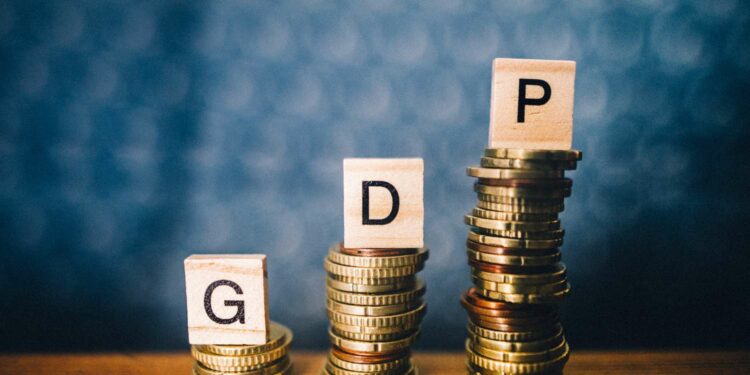Breaking Latin America’s Cycle of Low Growth and Violence
Violent crime and insecurity have a disproportionate impact on Latin America and the Caribbean, with severe consequences for socioeconomic development. Despite representing just 8% of the world’s population, the region accounts for nearly one-third of global homicides. This as well as other alarming statistics highlight the urgent need for comprehensive strategies to address the far-reaching effects of crime and violence.
New research by the IDB and IMF highlights how crime, insecurity and low growth reinforce each other in a vicious cycle that stifles investment, reduces tourism, and accelerates emigration. Macroeconomic instability—recessions, inflation spikes, and rising inequality—is associated with increased violence. Easily available firearms and organized crime amplify these effects, undermining institutions and the rule of law.
Quantifying the Costs of Crime
A recent IDB paper quantifies the direct losses, estimating that crime and violence cost the region 3.4 percent of GDP annually. These costs stem from productivity losses due to lives lost, injuries, and imprisonment; private-sector expenditures on security; and public spending on police, justice, and prisons. This is equivalent to 80 percent of the region’s public education budgets and double its social assistance spending.
But the impact of crime doesn’t end there. It discourages investment, reduces tourism, and drives emigration, further weakening economic resilience and constraining the region’s future growth. IMF research reveals that crime hampers innovation and reduces firm productivity, compounding economic stagnation over time. Leveraging geo-localized data on nightlights, the study finds that halving homicide rates in violent municipalities could increase their economic output by up to 30 percent. At the regional level, as shown in last year’s IMF research, reducing homicide rates to the global average could boost Latin America and the Caribbean’s annual GDP growth by 0.5 percentage points.
Conversely, macroeconomic instability often fuels spikes in violence: a recession in LAC is associated with a 6 percent increase in homicides the following year, while inflation spikes above 10 percent are linked to a 10 percent rise in homicides the year after. Growing inequality further exacerbates the link between economic stagnation and crime.
How can policymakers help break the cycle?
Breaking this vicious circle requires a deeper understanding of its root causes and impacts. Rigorous research and better data are essential for designing public policies that effectively reduce crime. Institutions like the IDB and IMF can generate evidence, monitor crime dynamics, advise member countries, and facilitate discussions. As the topic has become macro critical in the region, the institutions brought together experts and policymakers in a joint conference a few weeks back.
First, sound economic policy plays a preventive role. Stability, low inflation, robust social safety nets, and opportunities that reduce inequality and expand access to education and employment are critical to breaking the cycle of violence and stagnation. Financial authorities are also uniquely positioned to weaken criminal networks by addressing illicit markets, curtailing financial flows, and tackling money laundering—cutting off resources that sustain organized crime.
Second, because the impact of crime extends far beyond direct economic costs, economic policymakers must adopt a broader role by targeting high-risk groups, improving crime monitoring, and enhancing interagency coordination.
Effective interventions can deliver transformative results. With IMF support, Jamaica implemented reforms that protected public investment and social spending while successfully halving debt between 2012 and 2022. Community-based interventions supported by the IDB reduced gang violence in 68% of affected neighborhoods.
In Rosario province, Argentina implemented a comprehensive strategy to combat crime, including territorial control of high-risk neighborhoods by the Federal Police, stricter prison systems for high-profile offenders, and collective prosecution of criminal groups under new legislation like the anti-mafia law. These efforts, alongside progress on a juvenile penal code to deter drug traffickers from recruiting minors, have led to 65% reduction homicides in 11 months. In Honduras, strategic security reforms contributed to a 14% decline in the homicide rate and an 8% increase in public confidence in law enforcement.
Policymakers must prioritize using resources effectively, given the scope of the challenge. Public spending on security in the region is already high—around 1.9 percent of GDP, or 7.4 percent of total public expenditure—and may be even greater where the military and subnational governments are involved. Finance ministers and fiscal authorities need a full understanding of these costs, covering police, courts, prisons, and related institutions, to ensure funds are allocated efficiently to areas with the highest impact. They also need to monitor them in the same way they surveil other large spending tickets, evaluating their impact and pressing for results.
Transnational Crime Demands Regional Cooperation
Tackling crime solely at the national level isn’t sufficient. Criminal groups operate across borders, making isolated responses ineffective and fragmented. To address this shared challenge, countries must collaborate more closely to develop stronger, more coordinated solutions.
Recognizing the transnational nature of crime, the IDB’s Alliance for Security, Justice, and Development seeks to unite governments, civil society, and private-sector actors. This alliance not only aims to strengthen institutions and enhance cooperation but also supports public policies and mobilizes resources to implement evidence-based solutions that effectively combat organized crime and violence.
Regional collaboration is crucial for disrupting the sophisticated, interconnected networks of organized crime that undermine the rule of law and economic stability. By fostering unified efforts, institutions like the IMF and IDB alongside governments and civil society, have a critical role to play in this effort.
With people’s lives on the line, the true impact of these efforts must be felt on the ground—by creating safer streets, restoring hope in communities, and offering individuals a real chance to thrive economically in a future free from violence.








